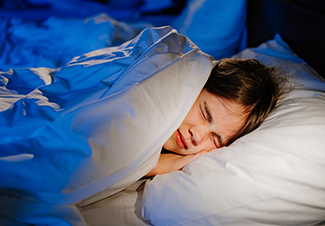Your Cart is Empty
Free Shipping on ALL alarms!
And on all orders of $35 or more *Continental US only
Free Shipping on ALL alarms!
And on all orders of $35 or more *Continental US only

“Lifting” your child at night means walking him or her to the bathroom when you (the parents) are awake. This method of toileting is on the parent’s schedule and not based on the child’s physiological need to empty their bladder.
Some parents:
Wetting in spite of lifting
Many of these parents will report that their child will still have a wet bed, in spite of “lifting”. Or that they will invariably wet on nights when the parent is not available to lift them. Children often are not awake during lifting and do not remember this in the morning. Because the child depends on their parent to get them to the toilet, they still are not free to spend the night with friends who are not able to do this.
Your child does not learn the important brain-bladder connection when the adult picks an arbitrary time for them to toilet.
Lifting may help your child have fewer wet nights but they are unable to put together the feeling that comes when you need to go potty with the need to wake up. Walking your child to the bathroom at 11:00 pm may actually encourage bladder emptying when it is not really full, instead of holding it until closer to morning.
Parents cannot predict exactly what time their child needs to use the bathroom because it changes every night.
The best strategy for knowing when wetting is occurring is to use a moisture sensing alarm. Both parents and child are alerted precisely when the child needs to wake up to use the bathroom. The alarm will not sound until wetness is detected, so the child will not be alerted until their bladder is ready to be emptied.
Moisture sensing alarms allow the child to learn what a full bladder feels like and what they should do before releasing the urine and wetting the bed.
The first few weeks are challenging for parents because the alarm could sound at any time of the night. But over time, wetting becomes less frequent and closer to morning. The other big change is that your child will have smaller wet spots in bed and urine left to empty in the toilet. The body begins to be conditioned to stop the urine flow when the alarm sounds.
Over time, your child will learn to wake up before wetting (and before the alarm sounds) or hold it in until morning.
Comments will be approved before showing up.